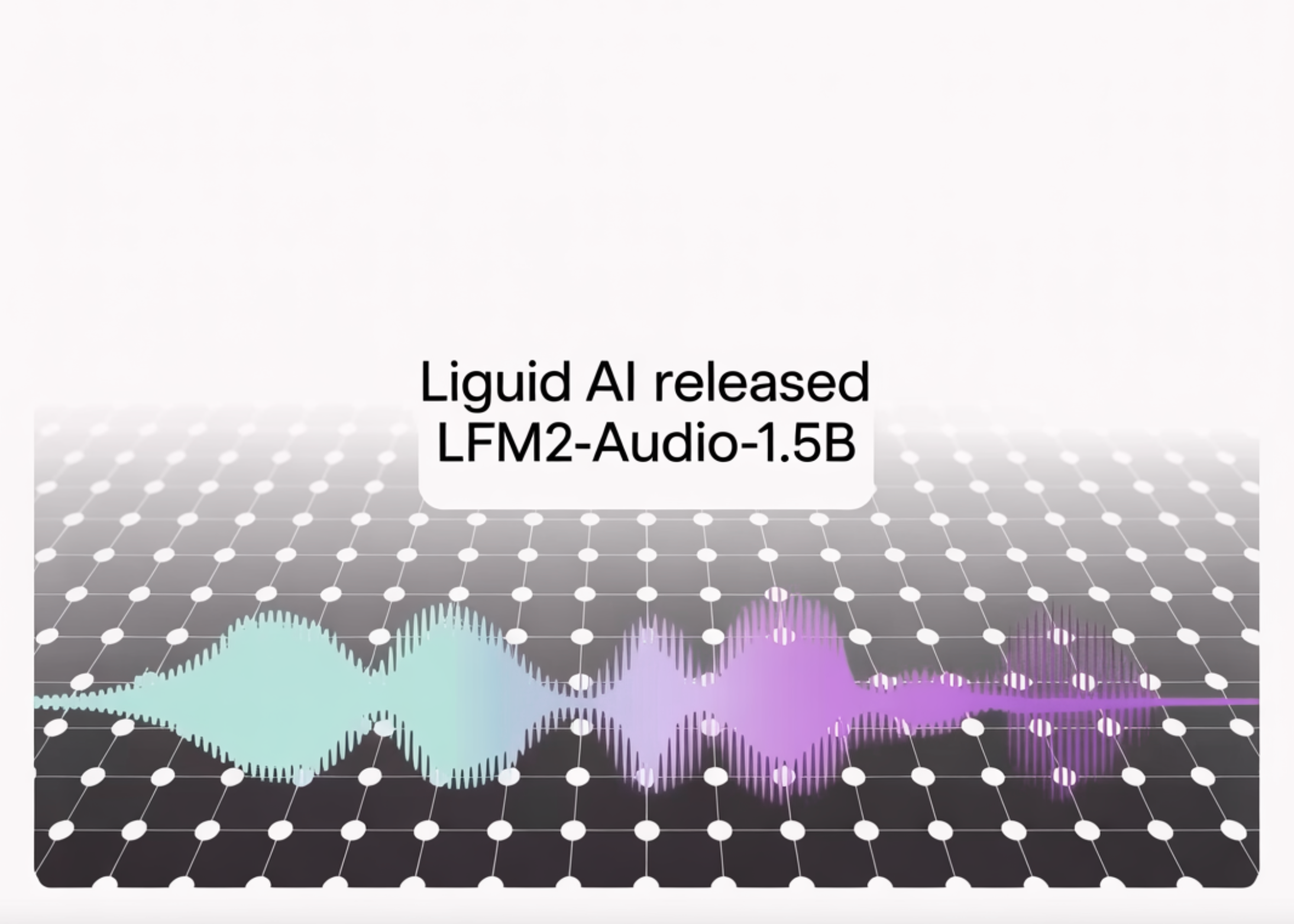
Introducing LFM2-Audio-1.5B: Liquid AI's Compact Foundation Model for Real-Time Audio Processing
Liquid AI has unveiled its latest innovation, the LFM2-Audio-1.5B, a state-of-the-art audio-language foundation model designed to both understand and generate speech and text through a unified end-to-end system. This new model is specifically tailored for low-latency, real-time applications on resource-constrained devices, expanding the capabilities of the existing LFM2 family into the audio domain while maintaining a compact footprint.
Key Features of LFM2-Audio-1.5B
- Unified Backbone: The model builds upon the 1.2B-parameter LFM2 language backbone, treating audio and text as first-class sequence tokens.
- Disentangled Audio Representations: Inputs are represented as continuous embeddings derived from raw waveform chunks, while outputs consist of discrete audio codes.
- Low Latency: Designed to offer a response latency of under 100 milliseconds, making it ideal for interactive applications.
The LFM2-Audio model's innovative approach to audio representation is significant. By projecting inputs directly from raw waveforms, the model minimizes discretization artifacts, ensuring a seamless experience in both training and generation processes for audio and text.
Applications and Impact
As the demand for efficient real-time audio processing continues to rise, LFM2-Audio-1.5B positions itself as a crucial tool for developers creating voice assistants and other interactive AI applications. Its ability to operate effectively on devices with limited resources opens up new possibilities for deployment across various sectors, including mobile technology and IoT devices.
According to industry analysts, this model could significantly enhance the performance of virtual assistants and other conversational agents, allowing for more natural and responsive interactions with users.
As Liquid AI continues to innovate in the realm of audio processing, the release of LFM2-Audio-1.5B marks a notable advancement in the field of artificial intelligence, reinforcing the company's commitment to pushing the boundaries of technology.
Rocket Commentary
Liquid AI’s introduction of the LFM2-Audio-1.5B signifies a pivotal advancement in audio-language processing, particularly for real-time applications on resource-constrained devices. While the model's ability to unify audio and text as sequence tokens is promising, we must remain cautious. The potential for transformative applications in sectors such as accessibility and customer service is immense, but this also raises concerns about ethical use and data privacy. As this technology becomes increasingly integral to business operations, it is crucial that developers prioritize not only innovation but also the responsible deployment of such powerful tools, ensuring they enhance user experience without compromising ethical standards.
Read the Original Article
This summary was created from the original article. Click below to read the full story from the source.
Read Original Article